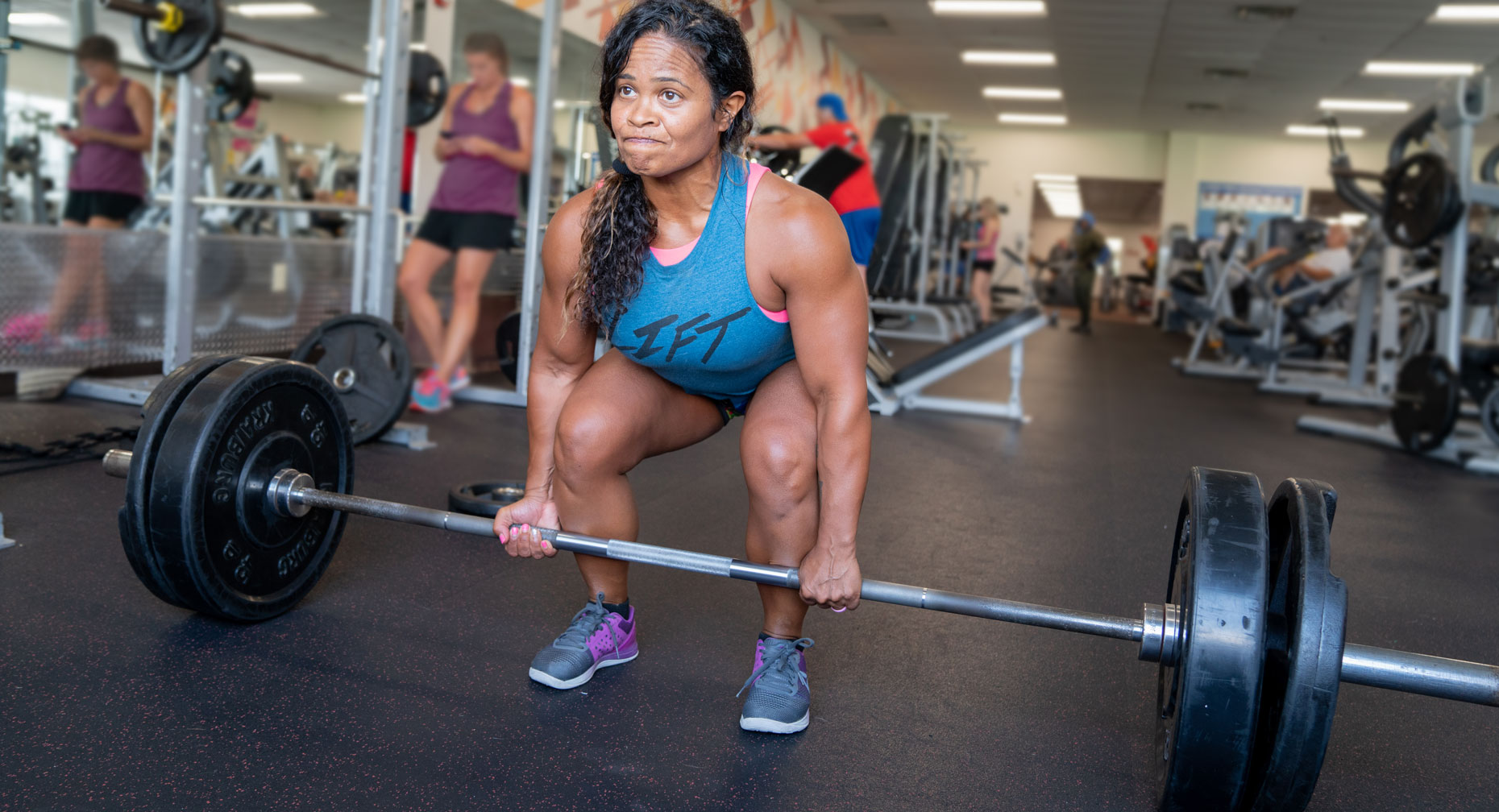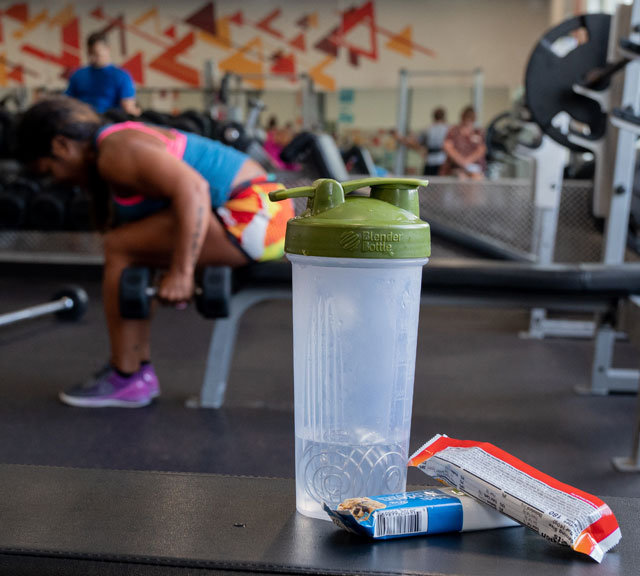Will Workout Supplements Make Me a Better Athlete?

Answer a few questions and we'll provide you with a list of primary care providers that best fit your needs.
If you've ever embarked on a new food regimen or exercise program, you know there's no shortage of advice — and products on the market — promising to deliver a leaner, healthier you, with more energy and stamina than ever! It can sometimes be hard to sort fact from fiction.
If you work out regularly or play competitive sports, you may have heard about workout supplements — also called dietary supplements, ergogenic aids or performance supplements — that promise to help you exercise more efficiently, train with greater intensity and, in general, get better and faster results from your efforts. Some supplements are meant to be taken before your workout; others are said to help with post-workout "recovery," rehydrating you and replacing nutrients depleted by your workout.
Supplements come in different forms, including capsules, tablets, powders, drinks and bars. Their ingredients vary, but can include vitamins, minerals, protein, amino acids or herbs in differing amounts and combinations.
Is it safe to take workout supplements? Do they really work? Let's take a closer look.
Are Workout Supplements Safe and Effective?
The safety and effectiveness of workout supplements can be difficult to pin down, primarily because these products are not regulated by the U.S. government in the same way that prescription and over-the-counter drugs are. Supplements are neither tested nor approved for sale by the U.S. Food and Drug Administration (FDA). In fact, in many cases, even the supplement manufacturers themselves don't fully research their products' safety or effectiveness.
Academic studies of select products are carried out by college researchers, but those studies are often small-scale and inadequate to fully prove that a supplement will be safe and helpful for all potential users. Most combinations of ingredients have not been studied. For many supplements, no one knows how safe they are or how successful they may or may not be at enhancing performance.
There are rules: for instance, supplements may not legally contain pharmaceuticals or contaminants (ingredients that are impure or otherwise unhealthy), and manufacturers are not allowed to claim that their supplements can diagnose, treat, cure or prevent a disease. But the supplement manufacturers themselves are responsible for ensuring that their products are safe and that any claims they make on the product labels are true and not misleading. Once a supplement is on the market, if it's found to be unsafe, the FDA (sometimes acting along with the Federal Trade Commission) can have it removed from the market or ask the company to recall the product.
Some supplement ingredients actually can have a positive effect on performance, with relative safety. For instance, beet juice has been shown, in many (but not all) studies, to improve performance and endurance in activities like running and cycling. Caffeine may boost endurance, strength and power in team sports. The point is that it's best to approach your nutrition and dietary supplement options as an informed, skeptical consumer.
For many supplements, no one knows how safe they are or how successful they may or may not be at enhancing performance.
What Are the Risks?

Since supplements can arrive on the market without extensive testing, be mindful of potential hazards. These include:
- Supplements that interact with your medications. A supplement could cause a bad reaction when combined with medicines you're taking. As just one example, many pre-workout supplements contain a substantial dose of caffeine. If you happen to be taking cimetidine (Tagamet HB), a medicine used to treat ulcers, your chance of experiencing side effects from caffeine consumption will be increased.
- Contaminated products. Some supplements may contain unlawful stimulants, steroids, prescription medications, or other controlled or unapproved substances. Using these kinds of products can create serious health problems for you, and they could disqualify athletes from competing.
The FDA warns specifically about buying products marketed as "dietary supplements" from ethnic or international stores, flea markets, swap meets or online. Their frank caution: "Health fraud scams abound." Among the types of claims the FDA warns about are:
- Claims that a product is “all natural.” Natural does not necessarily mean safe (poison ivy is natural, after all), and a manufacturer's claim that a product is natural doesn't mean it actually is.
- Personal testimonials. These are easy to fake and are not a substitute for rigorous scientific studies.
- Claims that a product is FDA-approved. The FDA does not approve either domestic or imported dietary supplements.
If you'd like to dig into the details about the safety (or not) and effectiveness (or not) of specific workout supplements you're considering, the National Institutes of Health offers a helpful table assessing common supplement ingredients![]() . A more extensive list of other dietary supplements and their characteristics is available through the National Institutes of Health's Office of Dietary Supplements
. A more extensive list of other dietary supplements and their characteristics is available through the National Institutes of Health's Office of Dietary Supplements![]() .
.
Manufacturers and sellers of workout supplements can opt to have their products tested by companies who provide that service. If the supplement is found to be free of banned ingredients and drugs, the manufacturer can display the certifier's logo on their website. Two of the larger certifying organizations are NFS International's "Certified for Sport" program and Informed-Choice.
I Want to Enhance My Performance. What Should I Do?
If you’re considering workout supplements, have a discussion with your doctor or health care provider about your goals, and about possible benefits and dangers of supplements. Learn all you can by consulting trusted online sources, such as the National Institutes of Health’s Office of Dietary Supplements.
Remember, too, that good everyday nutrition should be your foundation. A solid, balanced diet — including carbohydrates and healthy fats to give you more energy, and protein to help you recover and rebuild — can give you more energy throughout the day and during your workout.
Answer a few questions and we'll provide you with a list of primary care providers that best fit your needs.
Source: National Institutes of Health, Office of Dietary Supplements; Penn State, Science in Our World, course blog; U.S. Food & Drug Administration




